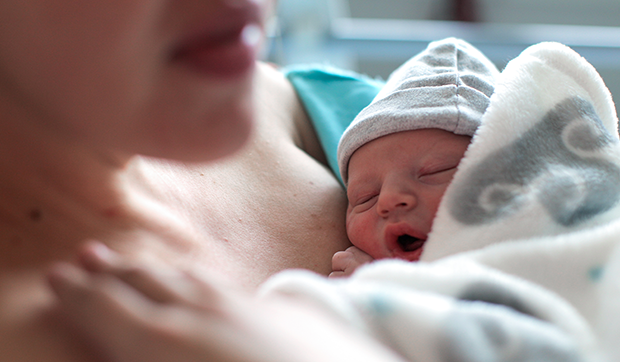Safe and effective birth control is one of the greatest inventions for female reproductive health of all time. From contraceptive pills, to injectables, to the normal ICUD device, there are a variety of birth control options for women and they all come with their own benefits, risks, and questions.
One of the most pressing questions women have regarding this topic is if being on birth control for years can cause infertility.
We chatted with one of Australia’s leading fertility specialists and gynaecologists, Dr. Raewyn Teirney, to find out how birth control affects a woman’s fertility and if being on birth control for years can cause infertility.
RELATED: What causes infertility?
RELATED: Infertility treatment options
What are the different types of birth control available for women in Australia?
Dr. Raewyn explains that there are “several forms of birth control.”
“One is hormonal birth control in the form of the contraceptive pill, the other is the hormonal IUCD called the Mirena, there are the injectables called Depoprovera and Implanon, and of course the normal IUCD device.”
How does birth control affect female reproductive health?
Dr. Raewyn explains that hormonal contraception acts by suppressing the ovary from producing and developing an egg, suppressing ovulation, and in turn, suppressing ovarian hormone production of estrogen and progesterone.
“Most contraceptive methods have benefits beyond contraception,” Dr. Raewyn says. “All hormonal birth control generally reduces the amount of bleeding each month and has a benefit in reducing heavy menstrual bleeding and anaemia.”
She explains that because this type of contraceptive suppresses ovarian hormones, they help to suppress the growth of endometriosis and improve PMS.
Is being on birth control for years bad for you?
While Dr. Raewyn says that being on birth control for years is not bad for you, certain types of birth control can become dangerous once a woman reaches 40. “Women 40 years+ using estrogen containing birth control are at a greater risk of hypertension and stroke.”
But that doesn’t mean women over 40 can’t take birth control! “We recommend they change from an estrogen containing pill to either a progesterone only birth control pill or and IUCD.”
Does being on birth control for years cause infertility?
“The answer is NO,” Dr. Raewyn emphasises. “However sometimes it may take a few extra months for a woman’s menstrual cycle to return after stopping the injectable birth control – Implanon and Depo-provera.”
Can being on birth control for years contribute to infertility?
While being on birth control for years does not directly cause infertility, Dr. Raewyn says there is a small risk of the IUCD causing issues with fertility. “There is always a small risk of tubal disease and a pelvic infection with the Intra-uterine contraceptive device (IUCD). This can then lead to blocked fallopian tubes and infertility.”
However, there are serious precautions taken prior to giving a woman an IUCD that mediate this risk. “Prior to inserting the IUCD women are screened for infections first. The IUCD is inserted under sterile conditions.” This type of contraception is also generally suited for women who are finished having children or who cannot tolerate hormonal birth control.
Dr. Raewyn also explains that the IUCD may not be suitable for women who have multiple partners as the risk of infection is higher, or those who have previously had a pelvic/tubal infection.
What about the pill? Does being on the pill for years contribute to infertility?
“The oral hormonal contraceptive pill does not cause or contribute to infertility.” Dr. Raewyn says that in fact, the pill can help protect a woman’s fertility.
“The benefit is that it may reduce the incidence of endometriosis, a condition that can cause infertility and pelvic pain.” She explains that all hormonal contraception, including the pill, Mirena, IUCD, and injectables, are used as medical treatment for endometriosis and endometrial hyperplasia.
Do birth control pills have any negative effects on a woman’s body?
“Sometimes the progesterone hormone in the pill and in birth control injectables can cause acne, but there are newer types of progesterone that do not do this.” Other side effects Dr. Raewyn notes include possible weight gain and depression, however there is limited research to back up both these claims.
Should women consider getting off birth control for a period of time before trying conceive?
“Yes,” she says. “If people are wanting to conceive, women using the Mirena IUCD or the hormonal Injectables should stop this contraception at least 4-6 months prior.”
For those taking the pill, Dr. Raewyn says it’s safe to stop just one month prior to trying to conceive.
Do you suffer from infertility? Do you have any advice for people who may be going through it now?




For years and years the pullout method worked well for me, but as i have my little monkey now (we planned her 🙂 ) we started to think about some other options too. I also read a great article about the birth control methods here https://birthcontrol.com/ and i was so surprised that there are around 20 of them. It’s crazy, but I’ve never even heard about some. From all the information i read my two favorites ones are Mirena and Depo shot (both have pros and cons). I will definitely discuss these options with my gynecologist.